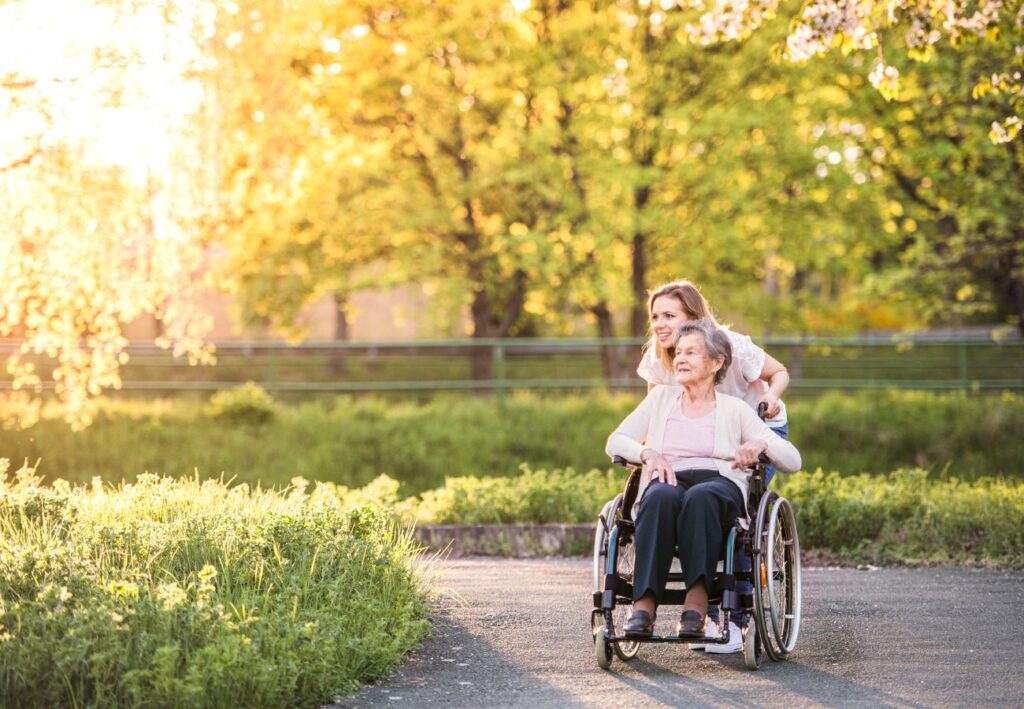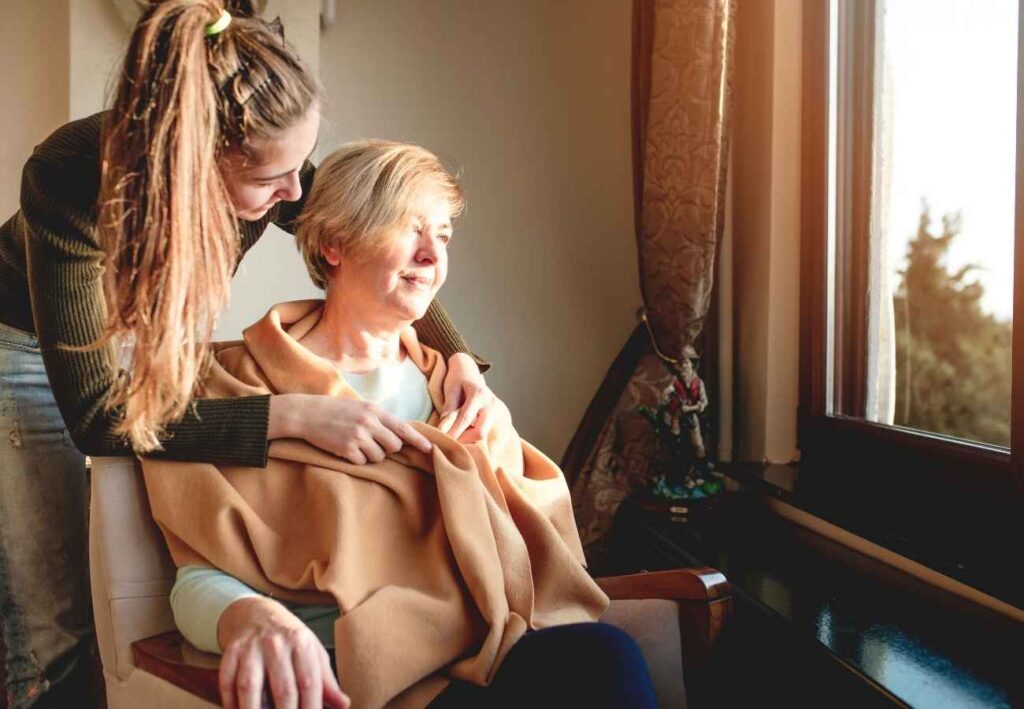The Impact of Community Gardens in Elderly Care Facilities
Community gardens have become an increasingly popular feature in elderly care facilities, offering numerous benefits that go far beyond the aesthetic appeal of lush greenery. These gardens provide a therapeutic environment that promotes elderly health and well-being, enhances social interaction, and offers meaningful activities that contribute to the overall quality of life for seniors. As more elderly care facilities recognize the value of community gardens, it’s important to understand their impact on the lives of the residents and how they can be integrated into senior care programs.
In this article, we’ll explore the benefits of community gardens in elderly care facilities and how they can improve elderly health, offer valuable caregiver tips, and enhance elderly care. For those seeking professional elderly care, including options in Fortuna, learn how community gardens can play a pivotal role in the best senior care services. At First Choice Care Home, we are committed to providing a nurturing environment that promotes well-being and happiness for all our residents.
The Benefits of Community Gardens in Elderly Care Facilities
1. Promoting Physical Health and Well-being
One of the most significant benefits of community gardens in elderly care facilities is the positive impact on physical health. Gardening activities, such as planting, watering, and weeding, provide low-impact exercise that is suitable for seniors. These activities help improve mobility, flexibility, and strength, which are crucial for maintaining independence and reducing the risk of falls. Regular physical activity also supports cardiovascular health, boosts the immune system, and helps manage chronic conditions such as arthritis and diabetes.
At First Choice Care Home, we recognize the importance of physical activity for our residents. By integrating community gardens into our elderly care program, we provide a space where seniors can engage in light exercise, enjoy the fresh air, and experience the satisfaction of nurturing plants to life.
2. Enhancing Mental and Emotional Well-being
Gardening is not only beneficial for physical health but also has profound effects on mental and emotional well-being. Being in nature and working with plants have been shown to reduce stress, anxiety, and depression. The repetitive and rhythmic nature of gardening tasks can have a calming effect, providing a form of meditation that helps clear the mind and reduce negative thoughts.
For seniors coping with loss, whether it be the loss of a loved one or a loss of independence, gardening can offer a sense of purpose and accomplishment. It can serve as a therapeutic outlet, helping them process their emotions in a healthy and constructive way. The nurturing aspect of gardening—caring for plants, watching them grow, and harvesting produce—can instill a sense of hope and renewal.
3. Fostering Social Interaction and Community Building
Community gardens in elderly care facilities are excellent for fostering social interaction and building a sense of community among residents. Gardening is often a communal activity, requiring collaboration and teamwork. This shared endeavor can help break down social barriers and encourage residents to form new friendships and strengthen existing ones.
At First Choice Care Home, our community garden serves as a gathering place where residents can come together, share stories, and learn from one another. This interaction is particularly beneficial for seniors who may feel isolated or lonely, as it provides a sense of belonging and support.
4. Encouraging Cognitive Stimulation and Learning
Gardening is an activity that engages the mind, offering cognitive benefits that are particularly valuable for seniors. It requires planning, problem-solving, and decision-making—skills that help keep the brain active and engaged. For elderly residents, especially those experiencing cognitive decline, gardening can serve as a form of cognitive therapy, helping to slow the progression of conditions like dementia and Alzheimer’s disease.
Furthermore, community gardens can be a place of continuous learning. Residents can learn about different plants, gardening techniques, and the science behind growth and cultivation. This ongoing education stimulates the mind and provides a sense of achievement and pride in their knowledge and contributions.
5. Improving Nutritional Health
Many elderly care facilities with community gardens grow fruits, vegetables, and herbs, which can be used in the meals prepared for residents. Access to fresh, homegrown produce encourages healthier eating habits and improves nutritional intake, which is vital for elderly health. Consuming fresh produce can lead to better digestion, lower cholesterol levels, and reduced risk of chronic diseases.
At First Choice Care Home, we incorporate the fresh produce grown in our community garden into our residents’ meals, ensuring they receive nutritious, farm-to-table dining experiences. This not only supports physical health but also enhances the overall dining experience, making meals more enjoyable and meaningful.
Caregiver Tips for Incorporating Community Gardens in Elderly Care
1. Start Small and Simple
When introducing a community garden in an elderly care facility, it’s essential to start small and simple. Begin with easy-to-grow plants that require minimal maintenance, such as herbs, tomatoes, and lettuce. As residents become more comfortable and confident with gardening, more challenging plants can be introduced.
2. Ensure Accessibility
Accessibility is crucial in designing a community garden for elderly residents. Raised garden beds, wide pathways, and easily reachable tools ensure that all residents, regardless of their mobility levels, can participate. Ergonomic gardening tools with comfortable grips can also make gardening easier for seniors with arthritis or limited hand strength.
3. Provide Support and Guidance
Caregivers play an essential role in supporting residents in the community garden. Providing guidance on gardening techniques, offering encouragement, and assisting with more physically demanding tasks can help residents feel more comfortable and motivated to participate. It’s also important to foster an inclusive environment where all residents feel welcome and valued in the gardening activities.
4. Encourage Regular Participation
To maximize the benefits of the community garden, encourage regular participation from residents. Create a gardening schedule with daily or weekly tasks that residents can sign up for, fostering a sense of responsibility and routine. Hosting gardening events, such as planting days or harvest festivals, can also encourage participation and create excitement around the garden.
5. Integrate Gardening with Other Activities
Gardening can be integrated with other activities to enhance its benefits. For example, a cooking class using produce from the garden can teach residents about nutrition and healthy eating. Art classes can incorporate plant-themed projects, such as painting or flower arranging. These interdisciplinary activities can enrich the gardening experience and provide multiple avenues for engagement.

Choosing the Best Senior Care Services in Fortuna
The Role of Community Gardens in Professional Elderly Care
For those seeking the best senior care services in Fortuna, community gardens can be a valuable feature to consider. A facility with a community garden demonstrates a commitment to the holistic well-being of its residents, providing opportunities for physical activity, social interaction, cognitive stimulation, and nutritional health.
At First Choice Care Home, we are proud to offer a professional elderly care environment that incorporates the benefits of a community garden. Our residents enjoy a vibrant, active lifestyle, supported by compassionate caregivers who are dedicated to enhancing their quality of life.
Why Choose First Choice Care Home?
First Choice Care Home is committed to providing the highest level of elderly care in Fortuna. Our community garden is just one example of how we prioritize the well-being of our residents. We offer a range of services tailored to meet the unique needs of each resident, including personalized care plans, engaging activities, and a nurturing environment.
Whether you are looking for assistance with daily living activities, professional elderly care, or support in coping with loss, our team is here to help. We understand the challenges that come with finding the right care for your loved ones, and we are dedicated to providing peace of mind through our compassionate and comprehensive approach.
Conclusion: Discover the Benefits of Community Gardens at First Choice Care Home
Community gardens offer numerous benefits that can significantly enhance the quality of life for elderly residents in care facilities. From promoting physical health and mental well-being to fostering social connections and improving nutritional intake, these gardens are a valuable addition to any elderly care program.
If you are searching for senior care in Fortuna that goes above and beyond, consider First Choice Care Home. Our commitment to creating a vibrant, supportive environment for our residents is evident in everything we do, from our community garden to our professional elderly care services. Contact us today to learn more about how we can help your loved ones thrive in their golden years.
Share this article to:
You May Also Like
Celebrating Daily Joys of Life in Elder Care Home Fortuna
Cherishing Every Moment Through Personalized Elderly Care At First Choice Care Home Fortuna, we believe that life…
Supporting Senior Mobility at Elder Care Home Fortuna
The Foundation of Quality Elderly Care At First Choice Care Home Fortuna, we believe that true elderly…
Caring for Seniors with Dementia – Elder Care Home Fortuna
A Compassionate Approach to Dementia Care in Fortuna Caring for seniors with dementia requires more than just…



